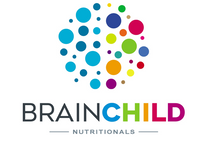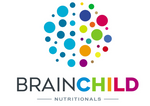NEW PERSPECTIVE: GUT BACTERIA AND AUTISM

New Study Finds Link between Autism and Heterogeneity in Gut Bacteria
An Arizona State University research team has found an association between the development of autism and the diversity of bacteria in our guts. The new finding could pave the way for specific supplements that will reinforce the
Autism Spectrum Disorder (ASD) is a collective name for developmental brain disorders, associated with mild impairment or severe disability. This study focuses on the link between autism to the heterogeneity in microbial
Over half of the children living with autism exhibit gastrointestinal symptoms,
Overview of the study
Discussed in peer-reviewed scientific journal PLoS One, the study by Arizona State University was helmed by Rosa Krajmalnik-Brown, who says that the prevalence of GI problems in autistic children encouraged them to investigate this topic.

The fecal samples of 20 autistic and 20 healthy children in the 3-16 year age bracket
The analysis revealed that autistic symptoms were prevalent in participants whose gut had a lower diversity of microbes.
This result was observed uniformly in the 20 autistic participants. Lower levels of three bacteria – Coprococcus, Prevotella and Veillonellaceae – were found in participants with the condition, in comparison to their healthy counterparts.
These three groups of bacteria play an important role in ensuring a healthy gut and a greater diversity of microorganisms.
Autism involves a broad range of symptoms and it is influenced by genetic and environmental factors. This adds a layer of complexity to the condition, and often comes in the way of accurate diagnosis. According to the Centers for Disease Control and Prevention, one in 50 children is afflicted by autism.
The increasing incidence of autism has been a source of worry for the medical community. More recent surveys reveal that boys are four times more likely as girls to be diagnosed with this disorder.
Some of the factors deemed responsible for the growing incidence of autism in children, hereditary aspects notwithstanding, include excessive consumption of antibiotics at an early age and Western-style diets, which can lower the diversity of the gut microflora.
Until now, a majority of studies of

Implications of the revelation
With
Thus, the lack of diversity in gut microflora and lower incidence of the three critical bacteria in autistic children is a significant discovery, says Dr Alex Richardson, senior research fellow at Oxford University.
Richardson says that correlation between the gut, brain health and immune health calls for further examination into this issue. She adds that the findings must be followed up and mined further to develop new approaches to autism within the medical community.
Complete study link
Study title:
Kang D-W, Park JG, Ilhan ZE, Wallstrom G, LaBaer J, et al.
Published: July 3, 2013
Other useful academic references:
Berg RD (1996) The indigenous gastrointestinal microflora. Trends Microbiol 4: 430–435.
Collins SM, Bercik P (2009) The relationship between intestinal microbiota and the central nervous system in normal gastrointestinal function and disease. Gastroenterology 136: 2003–2014
Willing BP, Russell SL, Finlay BB (2011) Shifting the balance: antibiotic effects on host-microbiota mutualism. Nature Reviews Microbiology 9: 233–243, PubMed/NCBI




